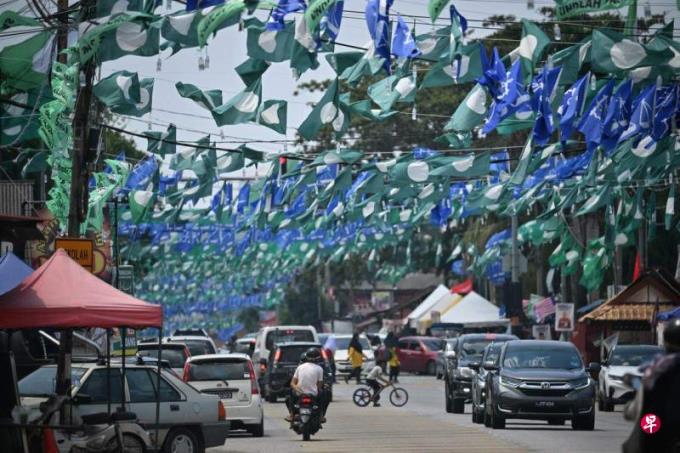
Since the independence of Malaysia and Malaysia, the so -called identity (identity) politics is playing an extremely important role in Malaysia politics.This is mainly because Malays with the largest number of people generally believe that most states are traditional Malaysian Malaysia countries, that is, of course, they should use them as the main body or dominant nation.However, the reality is one of the many other ethnic groups of Malaysia. From the Chinese, Indians to the indigenous peoples of the East Malaysia. They generally believe that Malaysia should be a country that advocates multiple ethnic groups and diverse cultures, not unique clan.Over the years, the political operations of Malaysia have been consumed to a large extent.This is different from most modern countries with the advantages and disadvantages of socio -economic governance and as a criterion for political contest.
The former Malaysian political mainstream was divided by ethnic groups. It was mainly represented by Umno, MCA, and the National University of the National University on behalf of the interests of Malays, Chinese and Indians.And the little party under the Barisan Nasional.In 2018, the Malaysian Kingdom changed, and the two main members of the Pakatan Harapan of the newly ruling Pakatan Harapan were the diversified ethnic parties, bringing a new weather to the Malaysian politics of the Malaysian politics.However, especially the "Malaysian Malaysia" political philosophy that the People's Bank of China has always been urged, I hope that all walks of life in Malaysia will not be distinguished from ethnic groups, and they are self -proclaimed by the Malays.The dominant position is completely unacceptable.This triggered a Clampooing coup in less than two years, and the Malay -led political party alliance regained power.
Because the Malaysian Constitution takes beliefs as the element of the Malaysian, in the internal political operation of the Malays, it can also be subdivided into politics that is based on ethnic rights or religious rights.The game of appeal.UMNO emphasizes the rights and interests of the Lord, while the Islamic Party focuses on religious rights.In the first 20 years of Mahathir's appointment, UMNO, on the basis of firmly controlling the religious rights and interests of the Malay ethnic group, recruit Anwar to promote the religiousization of Malaysian society and successfully put the edge of the Iraqi Party.change.Later, Mahathir and Anwar broke up, and to a certain extent, the Iraqi Party had recovered a political dominance.
Even more than two years after the setting of Sheraton, the political operational expositions of the Malay people are still the main rights and interests of ethnic groups and religious rights.At that time, the newly rising Tuling Party, because of Mu Yuding, who became the Prime Minister, was tattooed in the subject of Umno in the subject of the interests of the leading ethnic group, and evolved to the two parties in the ruling alliance at the time.At that time, the Baris Alliance with the BN, which was also a governing alliance, was also led by the Turkish Mission Party, which mainly advocated the rights of the ethnic group, and the Islamic Party, which promoted religious rights and interests, focused on the operation behind the scenes.
It is unexpected that in the national election of Malaysia in 2022, although the Islamic Party failed to become a member of the ruling, it jumped into the largest party of Congress and rolled up a politics called a green tide.The new trend -the focus of the Malay's political exposition has changed from an unprecedented ethnic rights to religious rights.This was confirmed again in the Liuzhou Election Last year, because most of the Iraqi Party has only won the stereotype political image of the rural seats before breaking through.Seats.In the National Alliance, the relative political status of the Turkish Party and the Iraqi Party also has a subtle adjustment. Because the Iraqi Party's seats are more than the Turkish Party, the right to speak in the league has increased greatly.The National Alliance is still led by Muyudin, and the leader of the parliamentary opposition parties also comes from the Turkish Party.
Some non -mainstream leaders in UMNO seeing that the Iraqi Party has risen strong and unwilling, they want to compete for the right to speak in the mainstream of the Malays' religious rights, and squeeze into the mainstream of the party by the way.Therefore, when there are incidents of religious words in socks, some people are biting the topic tightly, and they also call on the related merchants of the Ge Ge to obviously make the topic to get political capital.This is quite embarrassing for UMNO's mainstream seniors, because Umno's Pakatan Harapan coalition government advocates political diversity, and rendering religious differences is not conducive to government unity.
On the other side, the Iraqi Party is full of confidence in the control of the Malays 'religious rights and interests. However, the political cost is difficult to win the non -Malays' votes.However, the political calculation of the Iranian Party should be based on two assumptions, that is, the proportion of the Malays' population in the Malaysia will increase significantly, and more Malay people will pay more attention to religious rights and interests. ThereforeMalay votes are not impossible even if they are governed alone.However, the Iraqi Party is also aware that the right to speak of the Malaysians and the right to speak of the rights and interests of the Malaysians.Therefore, in a Congress -made election early this year, the Iraqi Party sent the Minister of Dingjinu, who had been a scientific and technological scholar, to win with a high ticket to become a reserve candidate for the party's future Prime Minister.In the recent re -election of the New ancient Maozhou seats, the Iraqi Party Propaganda Director challenged the academic qualifications of the Democratic Party candidates.Most of the Malays are dissatisfied with Malaysia and still have a variety of sources of Chinese education.From this point of view, political expositions dominated by identity are still the mainstream of Malaysian politics, which is exciting.
The author is a senior researcher at the Singapore International Affairs Society (Research Institute)
Chief Counselor of the Malaysian Pacific Research Center




